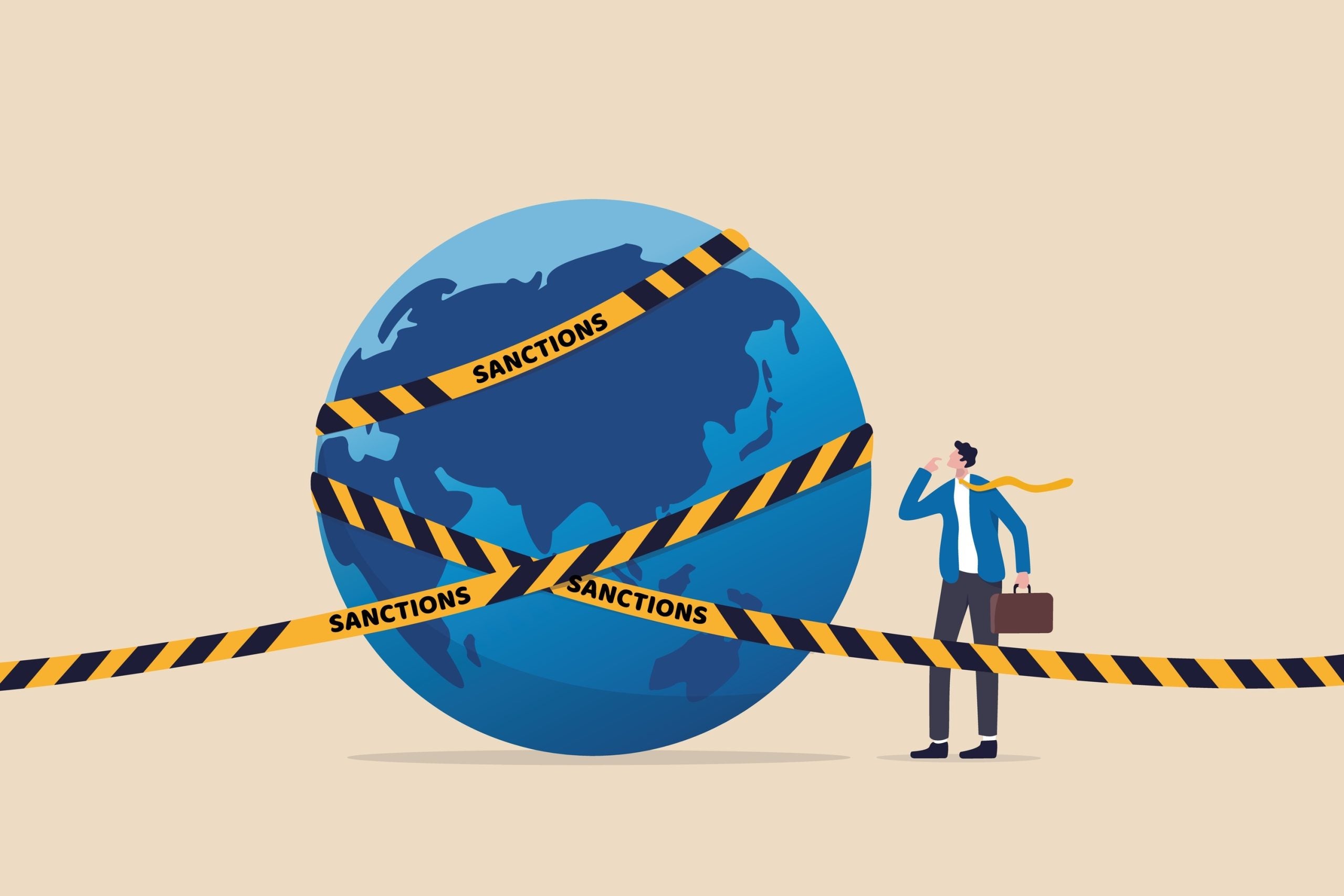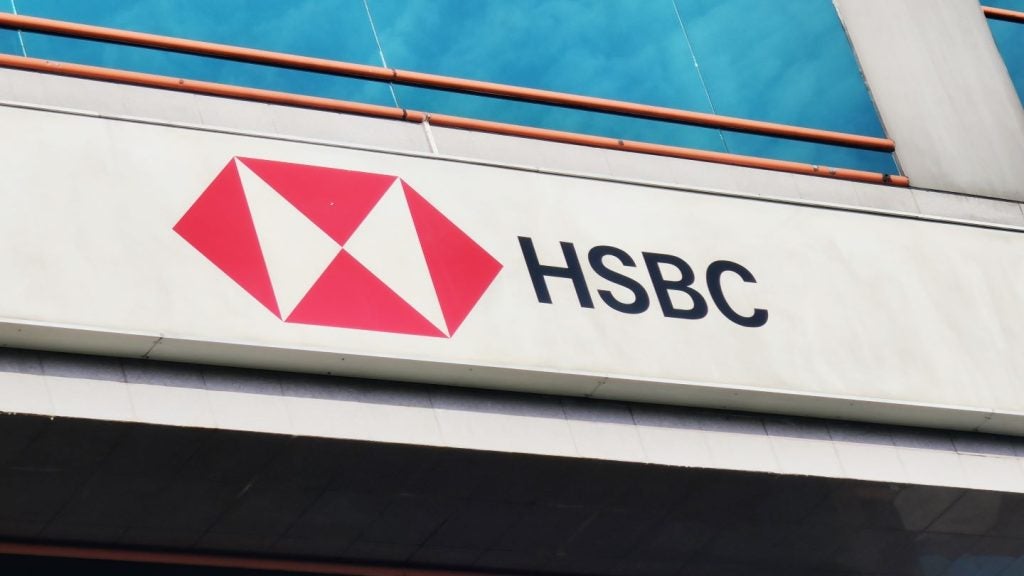
Sanctions are tools that pressure governments, individuals, and entities into changing their behaviour. In finance, they can limit or prohibit transactions – including electronic payments – between people, companies or countries.
In recent years and amid growing pressure from world leaders, a shift towards sanctions targeting individuals – rather than countries – has taken place, making it increasingly challenging for FIs to keep track of cross-border payments and money transfers.

Access deeper industry intelligence
Experience unmatched clarity with a single platform that combines unique data, AI, and human expertise.
Sanction screening is essential for compliance; banks and other FIs need to check customers’ identities against sanction lists to prevent sanctioned parties from doing business in their jurisdictions.
According to European Central Bank, between 2010 and 2020, financial institutions (FIs) received $27bn in fines due to non-compliance with anti-money laundering (AML), know-your-customer (KYC) and sanctions regulations. More recently, a survey conducted by First AML shows that 51% of companies received fines for AML non-compliance.
And while many companies continued doing business, a majority (85%) reported that the penalties harmed their operations. Now, following Russia’s renewed war in Ukraine and with Western sanctions in place, banks are forced to invest harder in compliance infrastructure.
“It has generally held up pretty well, in that banks have been investing more in those controls”, says Chrisol Correia, global head of Financial Crime Risk Management at Facctum, a company offering cloud-first screening capability.

US Tariffs are shifting - will you react or anticipate?
Don’t let policy changes catch you off guard. Stay proactive with real-time data and expert analysis.
By GlobalData“When I am speaking to large banks, smaller banks, niche banks, non-banks, it is all about sanctions compliance now, which is naturally where the priority needs to be because that’s the political and social focus of the moment”, Correia adds. “But it’s becoming harder for FIs to maintain compliance performance without causing significant additional strains.”
An “unprecedented” year
Tom Scampion, CEO of global sanctions screening company GSS, calls 2022 “unprecedented”.
“Last year was unprecedented”, Scampion notes. “And not just the volume of designations but the complexity of coordinating a response. Banks are not set up to deal with that volume of increase.”
Founded in 2021, GSS is a cloud-based platform that uses artificial intelligence to assess transaction data uploaded by financial firms, matching it against public and private sanctions lists to raise standards, take out costs and reduce friction in the global financial system. In October 2022, SWIFT announced a formal partnership with GSS, providing their expertise on security and data privacy, along with sanctions-specific support on RFIs and assurance. In January, GSS raised $45m in its first funding round to boost compliance standards.
Scampion tells RBI that sanctions are here to stay. According to him, the challenge for FIs is implementing sanctions in a world where costs are tight, margins are slim, and professionals must cover ever-increasing compliance pressures.
“We think the future will be around partnerships, expressed through platforms and sanctions. This is the first obvious example of how we can support the industry”, Scampion adds.
For Correia, 2022 was about “starting up from ground zero”. His company, Facctum, grants access to watchlists and cloud-screening capabilities. In November 2022, Facctum rolled out FacctSet, a solution offering the operational capacity to handle complex, evolving and large-scale watchlist data.
“The premise of Facctum has had a lot of resonance on the market”, Correia says. “We were founded on the assertion that tech stacks were ageing quickly and that FIs needed more capacity and grace of speed within their compliance systems.”
Unlike GSS, Facctum does not use artificial intelligence in its cloud-screening capabilities. Correia adds that the company’s main differentiator in the market is performance.
“We can do things very quickly and in a very large volume as well”, he says. “And critically, we can do that without compromising compliance standards. So it’s relatively straightforward to screen customers or transactions really quickly.”
Sanction screening technologies and false-positives
At first glance, sanction screening seems pretty straightforward. Banks buy lists from which they generate alerts to conform with sanctions and AML regulations.
However, a significant amount of sanctions-based, generated alerts are false positives.
Among the FIs using sanction screening tools, 51% reported a high rate of false positives, the ECB research conducted between 2010 and 2020 shows. According to these companies, around 98-99% of all alerts received were false positives, while only 1-2% required further investigations.
“You have got billions of transactions screened manually; that is a huge amount of volume needing to be reviewed”, Scampion tells RBI. “But bad actors are unlikely to use their name or similar permutations. So the people you catch are more likely to be those whose names are similar to (the names of) bad actors.”
The screening situation has lately improved with the advent of technology. Most FIs now deploy two screening controls to comply with sanction lists: transaction and entity screening. But there is hardly a single method that companies use to deploy sanction screening, Scampion from GSS says.
“It’s a mix. We have the simple rules-based matching that says, ‘does that name look like this name?’. But we also use machine learning to say ‘whenever we find an example of this type, it can be closed as a false positive’”, he tells RBI. “So let’s think about how we can automate things like false-positive detection.”
The need for automation is real, as GlobalData analysts predict that cross-border payments from sanctioned countries will continue to rise.
The number of Russian cross-border transactions will reach 459 million in 2023, compared to 342 million recorded in 2022; in Iran’s case, that number will go up from 1.35 billion in 2022 to 1.68 billion in 2023.
And while sanctions can prevent payments made through SWIFT to Western countries, they cannot prevent Western-friendly, third-party countries from doing business with Russia.
In February 2023, Russia took part at a biennial arms fair in the United Arab Emirates, where it offered weapons for sale, including Kalashnikov assault rifles to missile systems, AP reported. Money that would later be spent in Western markets.
“Payment screening is all about real-time”, says Correia. “So you need detection technologies that operate in low latency environments that provide instant black and white results and which have the resilience and robustness to perform in a real-time environment.”
Still, the compliance race rests not only on technologies such as automation, but also on the ability to afford them. When it comes to AML and global sanctions, some fintechs have raised funds to help banks and FIs comply with regulations.
In April, Fourthline raised $54.3m to fund compliance for European-regulated FIs. In January this year, Hawk AI raised $17m in a Series B found to provide, among others, for AML product development.
Correia from Facctum notes that AML, although different from sanction screening, is “becoming more of a real-time operation in that the length of time taken between a periodic batch check is quite a large window relevant to some of the risks.”
“I see FIs streamlining some of the AML checks to make it closer to transaction monitoring”, Facctum’s global head of Financial Crime Risk Management says. “In a traditional setup, you have a payment screening piece, you have a transaction monitoring piece which is looking for patterns – fraud or AML – and then you’ve got the batch screening as well.”
Emerging difficulties for sanctions compliance
There is a growing paradox between sanctions screening and the world of instant payments. As countries levy more sanctions on individuals and institutions, FIs must increasingly cope with different cross-border regulations and requirements, making compliance an area of friction.
“There is a lot of scrutiny in making sure that the tools, processes and the training of people are in place”, Correia says. “Previously, sanctions updates might have been okay to go live into compliance systems on the same working day. Now, our regulatory expectation is that those changes are made within minutes.”
With 10% of cross-border payments still under review, Swift says companies should boost data quality and streamline compliance processes. However, in the case of real-time payments, once a transaction is settled, recovery becomes almost impossible.
And it’s not just real-time payments that threaten the monitoring of sanctions. Many have wondered whether sanctioned individuals might turn to cryptocurrencies in the absence of any means to use traditional payment methods.
Yet, Correia from Facctum warns against fretting too much over blockchain and real-time payments. Crypto transactions, he says, are not “common means of doing transactions, particularly (when it comes to) business-to-business (B2B)”. And even where blockchain is concerned, there could be solutions that swiftly detect and block sanctioned parties from paying using this venue.
“You can put up some very effective gateways as people cash in and out of crypto, which is where a lot of the focus has been recently”, Correia explains. “And you can also build tools that try to de-anonymise crypto transactions, which take a lot of processes and power.”
In Russia’s case, GlobalData says cryptocurrencies might prove inviable, mostly because the crypto market remains highly volatile and the Kremlin lacks control over its decentralised system.
Western Sanctions against Russia and the Global South
In February 2022, Western countries removed Russia from SWIFT and imposed sanctions on its banks. Share prices in the banking sector were hit hard by uncertainty over the growth outlook and sanctions.
The new sanctions raised criticism from Global South countries, which treat Russia as an important business partner. And it did not take too long for countries to figure out a way to keep trading with the Kremlin.
In March 2023, Indonesia said it would launch its own credit card payment system.
The measure announced by Jakarta seeks to downscale the Asian country’s reliance on the payment systems provided by Visa and Mastercard; both giants suspended their services in Russia in March 2022.
Indonesia is not alone in its push against Western Sanctions. In March 2023, Cuba said it was preparing to launch the Russian Mir payment system. A Cuban official stated that the move is intended to “make it easier for Russian tourists to pay for services, buy gifts and souvenirs with the card”.
GlobalData analysts expect other countries to follow in Cuba and Indonesia’s footsteps – a move which could potentially fragment the global payment system and lead to a wider payment network for cross-border transactions.
“It is very likely that in the future we should expect to see a variety of payment networks by country and regions, each operating independently. Each of these networks are also capable of linking up with each other to form a wider payment network for cross-border transactions”, the report stated.
This is good news for Moscow, as it seeks to maintain its economic clout over African and Asian countries. In January 2023, Russia linked its banking system to Iran’s, signalling their intention to find ways around the Western system of payments.
However, the chances of other payment systems overtaking SWIFT in popularity in the foreseeable future are low. Around 11,000 member institutions sent an average of 42 million messages per day through SWIFT in 2021. For sanctions monitoring to remain effective, Correia highlights the need to improve screening capacity and performance at a time when “loss of compliance infrastructure is already getting hold”.
“I think that the strain of these new Russian things is really highlighting capacity and performance limitations of what’s in place.”







